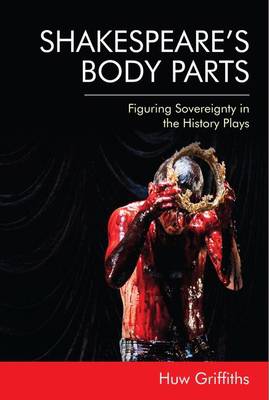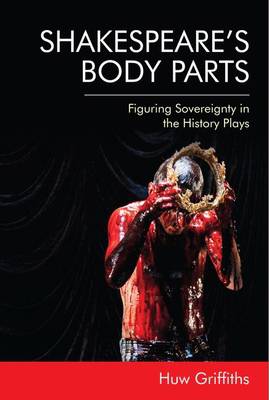
- Retrait gratuit dans votre magasin Club
- 7.000.000 titres dans notre catalogue
- Payer en toute sécurité
- Toujours un magasin près de chez vous
- Retrait gratuit dans votre magasin Club
- 7.000.0000 titres dans notre catalogue
- Payer en toute sécurité
- Toujours un magasin près de chez vous
Shakespeare's Body Parts
Figuring Sovereignty in the History Plays
Huw GriffithsDescription
Uncovers the workings of sovereign power in Shakespeare's history plays
Presents a sustained, formalist reading of Shakespeare's history playsReads Shakespeare's history plays for their contribution to political thought, and to theories of sovereigntyDelivers a thorough and wide-ranging formal analysis of Shakespearean body parts, both literal and figurativePresents a particular view of Shakespeare's language-use as "baroque", its convolutions contributing to complex articulations of sovereign willCapitalises on current theories of authorship in relation to the history plays in order to assess Shakespeare's particular contribution to how sovereignty is imagined in the late sixteenth century
This book provides a sustained, formalist reading of the multiple body parts that litter the dialogue and action of Shakespeare's history plays, including Henry V, Richard III, Richard II, King John and Henry IV. With a starting point in literary critical analyses of these dislocated bodies, the book tracks Shakespeare's relentless pursuit of a specific political question: how does human flesh, blood and bone relate to sovereignty? Griffiths advances our understanding of how human bodies are captured by -- and escape -- the grip of political systems.
Spécifications
Parties prenantes
- Auteur(s) :
- Editeur:
Contenu
- Nombre de pages :
- 160
- Langue:
- Anglais
Caractéristiques
- EAN:
- 9781474448703
- Date de parution :
- 20-10-20
- Format:
- Livre relié
- Format numérique:
- Genaaid
- Dimensions :
- 157 mm x 236 mm
- Poids :
- 408 g

Les avis
Nous publions uniquement les avis qui respectent les conditions requises. Consultez nos conditions pour les avis.






